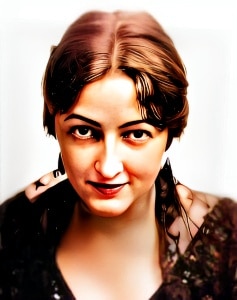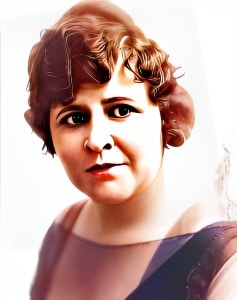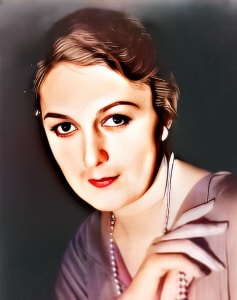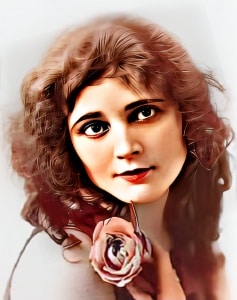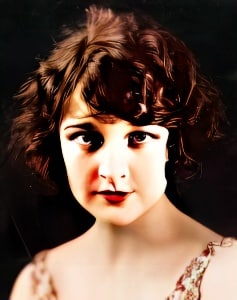 Eleanor Boardman, born on August 19, 1898, in Philadelphia, Pennsylvania, was a renowned actress of the silent film era.
Eleanor Boardman, born on August 19, 1898, in Philadelphia, Pennsylvania, was a renowned actress of the silent film era.
Her career in Hollywood spanned from the early 1920s to the advent of sound cinema in the late 1920s. With her talent, charisma, and distinctive beauty, Eleanor Boardman made a significant impact on the world of silent film.
Boardman’s journey into the world of entertainment began when she won a beauty contest in Philadelphia, which opened the door to a modeling career. Her striking looks and engaging presence quickly caught the attention of Hollywood scouts, leading her to sign a contract with Metro-Goldwyn-Mayer (MGM).
She made her film debut in 1922 with “The Strangers’ Banquet,” but it was her role in “ Souls for Sale” (1923) that catapulted her to stardom. In the film, she portrayed Remember Steddon, a small-town girl who is thrust into the glamorous yet treacherous world of Hollywood. Her performance was both captivating and relatable, capturing the aspirations and challenges faced by those seeking fame during the silent film era.
One of Boardman’s most celebrated roles came in the film “The Crowd” (1928), directed by King Vidor. She played the character of Mary, a young woman who marries the film’s protagonist, John Sims, and embarks on the journey of marriage and parenthood. The film is recognized for its realistic portrayal of ordinary life and the trials and tribulations faced by its characters. Boardman’s portrayal of Mary was both endearing and poignant, earning her critical acclaim.
Boardman’s on-screen chemistry with her co-stars was another hallmark of her career. She appeared alongside leading men of the silent era, including John Gilbert, John Mack Brown, and James Murray. Her ability to establish a genuine connection with her co-stars contributed to the success of her films.
While she was celebrated for her dramatic roles, Boardman also displayed her versatility by taking on comedic roles. Her talent for physical comedy and her expressive face made her a versatile performer who could excel in a variety of genres.
As the film industry transitioned from silent cinema to sound, many actors faced challenges in adapting to the new medium. Eleanor Boardman, despite her talent and success in silent films, had difficulty making a seamless transition to sound. Her distinctive voice did not align with the sound era’s vocal expectations, and she made fewer film appearances as a result.
Despite the challenges of the sound era, Eleanor Boardman’s contributions to silent film continue to be celebrated and admired. Her performances in iconic films like “ Souls for Sale” and “The Crowd” solidified her place in the history of cinema. Her ability to convey deep emotions without dialogue and her engaging presence on screen left an enduring legacy in the world of film.
Eleanor Boardman’s career in Hollywood may have been relatively brief, but her impact on silent film and her ability to capture the essence of her characters continue to be appreciated by cinephiles and scholars of early cinema. She remains an iconic figure of the silent film era, a time when the power of storytelling and emotion was conveyed through the artistry of silent cinema’s most talented actors.
Loading live eBay listings...

